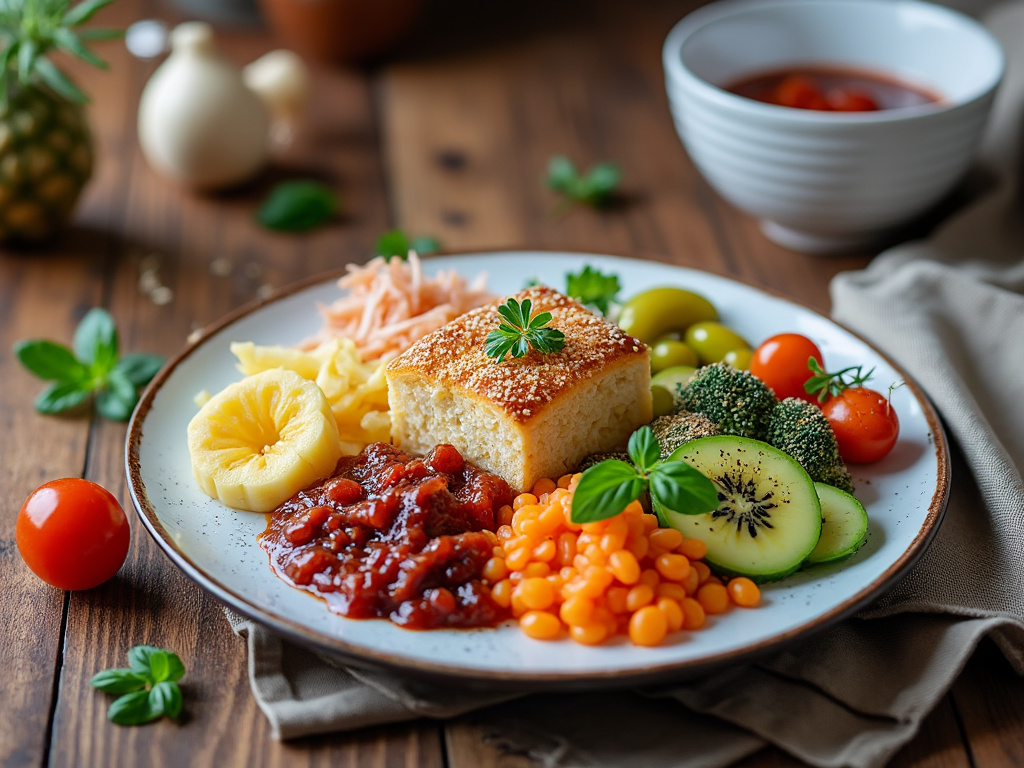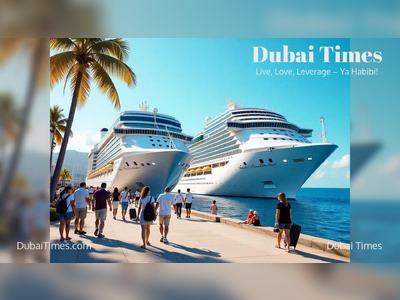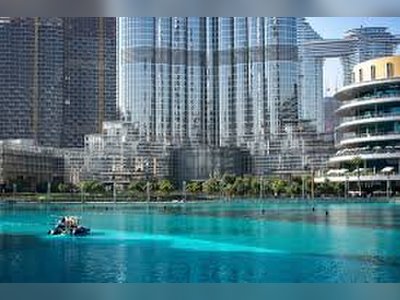
Dubai Municipality Implements AI for Food Safety and Product Compliance
Officials announce the integration of artificial intelligence in evaluating product compliance and enhancing food safety measures.
Dubai Municipality has announced a strategic initiative to incorporate artificial intelligence (AI) in the evaluation of product compliance and the analysis of documentation related to food safety.
Dr. Nasim Mohammed Rafee, the acting Executive Director of the Environment, Health, and Safety Department at Dubai Municipality, revealed plans to utilize AI technologies to digitally monitor supply chains, ensuring transparency and early intervention if any discrepancies arise.
This move marks a shift towards predictive regulatory frameworks aimed at preemptively addressing potential risks and maintaining high safety standards in the local market.
Currently, the database of the 'Producer' system includes more than 550,000 registered products across various classifications.
In 2024 alone, Dubai has imported approximately 1.9 million food items, with over 104,000 applications for consumer product registrations processed during the same year.
The economic impact of the Municipality's digital food safety services has been significant, contributing to cost reductions, faster procedures through the UPS system, and enhanced trade opportunities via the 'Producer Plus' platform.
Customer satisfaction has reached 100%, attributed to the reduction of paper-based processes and the provision of electronic services, which has also led to a decrease in environmental impact, with a carbon footprint reduction of 50%.
The Food Inspection Department at Dubai Municipality has been proactive in conducting workshops, such as 'Dubai Municipality's Role in Combating Food Fraud' at the Abu Dhabi Conference aimed at enhancing regulatory systems to mitigate food fraud risks.
Additionally, it conducted a scientific workshop titled 'Food Safety - Preparing for the Unexpected' at the Ministry of Health and Prevention.
The department's environmental monitoring efforts have improved the efficiency of oversight and response to potential risks, conducting inspections of 25,655 food establishments and executing 103 campaigns alongside covering 72 temporary events and 17 initiatives across restaurants.
Ongoing developments within Dubai Municipality include enhancing regulatory systems to secure consumer product safety and streamline processes for stakeholders from the point of origin to the end consumer.
This entails employing advanced inspection methodologies powered by modern technologies and risk management systems.
AI will play a crucial role in providing accurate product data, ensuring quality through electronic connections with international databases such as GS1.
Centralized databases connecting Dubai Customs and handling authorities at various ports with accredited laboratories will facilitate immediate decision-making regarding compliance and oversight.
Dr. Rafee noted that the expectation for increased trade activity seems promising, with supply chains anticipated to expand significantly, as evidenced by the more than 104,000 consumer product registration applications evaluated in 2024 alone.
The municipality enforces strict regulations ensuring that consumer products meet current local and international safety standards and testing requirements before they are marketed in the local marketplace.
Dubai’s food imports typically average over 1.6 million food items annually, with the total food imports for 2024 reaching around 1.9 million items.
Approximately 90% of the UAE’s food supplies are imported each year, with Dubai accounting for over 70% of total food import volumes accessed through its air, sea, and land ports.
The municipality has also launched various initiatives aimed at reinforcing the sustainability and safety of the food system, ensuring that food supply chains remain resilient.
These include a smart inspection system allowing users to submit corrective action requests, report foodborne illnesses, and respond to inspection visits via a digital interface.
The municipality has digitalized its food safety framework through the smart inspection system, enhancing services associated with product registration and evaluation, along with processing permits related to different activities and the release of imported food shipments intended for other emirates.
Dr. Nasim Mohammed Rafee, the acting Executive Director of the Environment, Health, and Safety Department at Dubai Municipality, revealed plans to utilize AI technologies to digitally monitor supply chains, ensuring transparency and early intervention if any discrepancies arise.
This move marks a shift towards predictive regulatory frameworks aimed at preemptively addressing potential risks and maintaining high safety standards in the local market.
Currently, the database of the 'Producer' system includes more than 550,000 registered products across various classifications.
In 2024 alone, Dubai has imported approximately 1.9 million food items, with over 104,000 applications for consumer product registrations processed during the same year.
The economic impact of the Municipality's digital food safety services has been significant, contributing to cost reductions, faster procedures through the UPS system, and enhanced trade opportunities via the 'Producer Plus' platform.
Customer satisfaction has reached 100%, attributed to the reduction of paper-based processes and the provision of electronic services, which has also led to a decrease in environmental impact, with a carbon footprint reduction of 50%.
The Food Inspection Department at Dubai Municipality has been proactive in conducting workshops, such as 'Dubai Municipality's Role in Combating Food Fraud' at the Abu Dhabi Conference aimed at enhancing regulatory systems to mitigate food fraud risks.
Additionally, it conducted a scientific workshop titled 'Food Safety - Preparing for the Unexpected' at the Ministry of Health and Prevention.
The department's environmental monitoring efforts have improved the efficiency of oversight and response to potential risks, conducting inspections of 25,655 food establishments and executing 103 campaigns alongside covering 72 temporary events and 17 initiatives across restaurants.
Ongoing developments within Dubai Municipality include enhancing regulatory systems to secure consumer product safety and streamline processes for stakeholders from the point of origin to the end consumer.
This entails employing advanced inspection methodologies powered by modern technologies and risk management systems.
AI will play a crucial role in providing accurate product data, ensuring quality through electronic connections with international databases such as GS1.
Centralized databases connecting Dubai Customs and handling authorities at various ports with accredited laboratories will facilitate immediate decision-making regarding compliance and oversight.
Dr. Rafee noted that the expectation for increased trade activity seems promising, with supply chains anticipated to expand significantly, as evidenced by the more than 104,000 consumer product registration applications evaluated in 2024 alone.
The municipality enforces strict regulations ensuring that consumer products meet current local and international safety standards and testing requirements before they are marketed in the local marketplace.
Dubai’s food imports typically average over 1.6 million food items annually, with the total food imports for 2024 reaching around 1.9 million items.
Approximately 90% of the UAE’s food supplies are imported each year, with Dubai accounting for over 70% of total food import volumes accessed through its air, sea, and land ports.
The municipality has also launched various initiatives aimed at reinforcing the sustainability and safety of the food system, ensuring that food supply chains remain resilient.
These include a smart inspection system allowing users to submit corrective action requests, report foodborne illnesses, and respond to inspection visits via a digital interface.
The municipality has digitalized its food safety framework through the smart inspection system, enhancing services associated with product registration and evaluation, along with processing permits related to different activities and the release of imported food shipments intended for other emirates.
Translation:
Translated by AI











